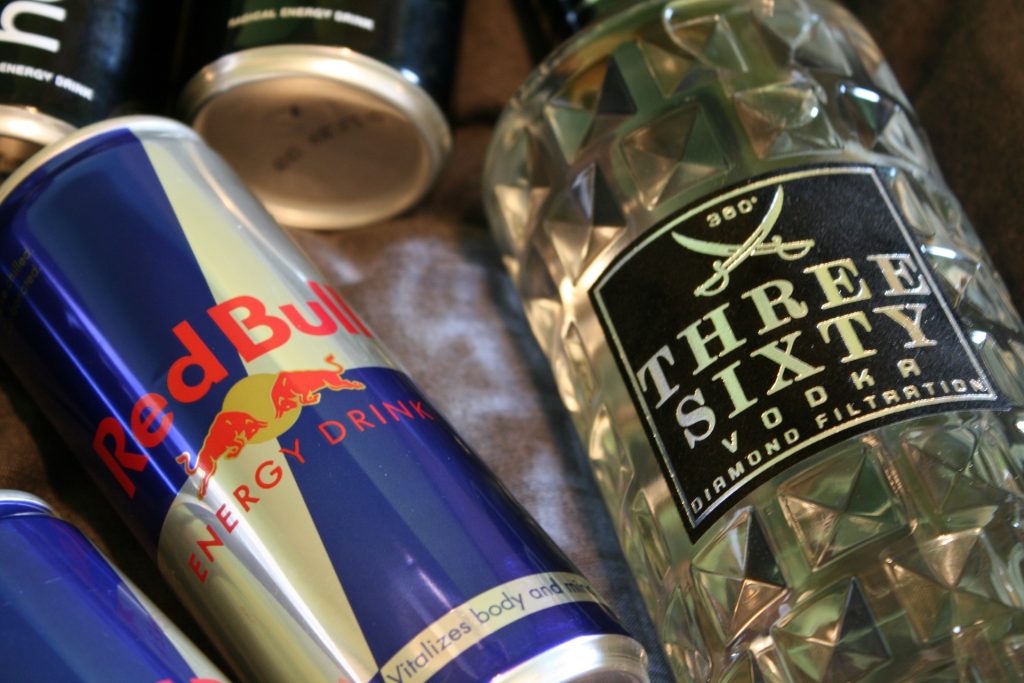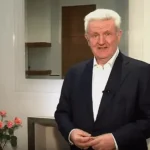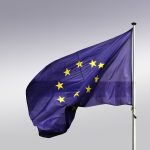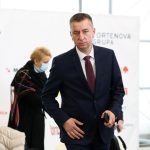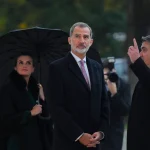MEP Biljana Borzan (SDP) thinks the Health Ministry and the Croatian Government should ban the sale of potentially dangerous energy drinks to minors
How many kids need to suffer the health consequences of consuming energy drinks before the government steps in and does something about it? Borzan asks, referencing the horrific case in which a twelve year old suffered a stroke.
“I’ve been warning people about this problem for years, I’ve submitted a proposal two times for a legal ban through Croatian parliament, but the Minister of Health and the government don’t even care about it,” said Borzan, recalling another energy-drink related death, this time of a thirteen year-old in Zagreb.
“I ask them, how many more children need to be harmed for you to do something about this? Whose interests are you defending with this carelessness and inaction?” asked Borzan. The MEP also pointed out that research shows that children and young people are increasingly drinking energy drinks, which are harmful to them in many ways, and a large number of children claim that they drink them because they need energy, which is of enormous concern.
On top of that, the very adult trend of mixing energy drinks with alcoholic beverages is also beginning to make an appearance among younger generations. Borzan believes the fact that energy drinks are even being consumed by kids should result in a ban on selling them to minors, but given the fact that kids are also mixing them with alcohol, nobody should be in two minds about the next move.
Koncar speaks out about employing controversial former government minister Darko Horvat, saying everything was strictly above board
Koncar rather surprisingly announced the employment of the former Minister of Spatial Planning, Construction and State Property, Darko Horvat, recently. Just keep in mind that Darko Horvat had to step down from his position as a minister within Plenkovic’s government because of alleged corruption.
Koncar has stressed that despite the fact that they have employed a minister who had to step down, everything was done correctly and Horvat was selected for the position thanks to his qualifications as a graduate electrical engineer.
“Owing to the recent retirement of an engineer who strategically participated in technical and commercial work related to the field of electricity distribution, a job opening was announced as we were seeking an electrical engineer with significant operational experience in that area. Mr. Horvat was selected as a graduate electrical engineer with extensive experience in the field of electricity distribution, including experience in the field of business at both the Croatian and international level.
During the initial media announcements, incorrect information was circulating claiming that Darko Horvat was set to hold the position of adviser to Koncar’s Management Board. In reality, his field of activity will be focused exclusively on the field of electrical distribution, Koncar stated.
After his resignation, Horvat activated what’s known as the 6+6 option.
On February the 19th, when he was first arrested, Darko Horvat resigned from his position and activated the 6+6 option, which legally prevents him from being appointed to management positions within companies with which his former ministry or government cooperated. It isn’t actually prohibited under the law for him to receive a fee for providing consulting services to or within a company in which the state has a three percent ownership. Koncar is 80 percent owned by Croatia’s pension funds, the head of which is HDZ member Gordan Kolak.
Economy Minister Davor Filipovic has stated that there will be no shortage of gas for the Croatian market this winter, despite talks of the opposite being the case
It seems like all we’re talking about recently is the spiralling price of gas and energy, and while the Croatian Government recently came to the decision that INA would sell all the gas produced here in Croatia to HEP, it turned out that this was simply not possible. INA has seven contracts that cannot be terminated. Minister Davor Filipovic commented on the situation.
”There’s going to be enough gas, and that Croatian gas is going to be provided to all hospitals, schools, kindergartens and all institutions at a price of 41 euros. The government made a decision recently that is heading in that direction,” said the Minister of Economy and Sustainable Development, Davor Filipovic, adding that the most important thing is that Croatian gas goes solely to Croatian institutions.
“It’s known that we ordered INA to increase gas production by 10 percent. As for the change in the regulation, for seven customers there are fixed contracts that cannot be terminated unilaterally, to unilaterally terminate would be more harm than good and termination would mean those customers launching lawsuits against INA, and then INA would sue us. That’s why we made that exception, and as soon as those contracts are finished, INA will be obliged to transfer all of the rest of that gas to HEP,” explained Filipovic.
He noted that distributors who have experienced losses will be able to buy their gas from HEP, adding that both INA and MOL have taken a huge hit to their reputations owing to the recently exposed affair.
The Croatian Government offered teachers higher wages, but the Croatian Teachers’ Union rejected their proposal for the second time
The Grand Council of the Croatian Teachers’ Union unanimously rejected the Croatian Government’s latest offer on wage increases which came to light on October the 18th. The new offer was deemed unacceptable because it wasn’t even aimed at securing a greater increase in the base rate compared to their previous offer, but only at a different dynamic of the payment of the previously proposed increase in the base rate, the Croatian Teachers’ Union announced when explaining the reasons behind their rejection.
“Increasing the amount we get for Christmas bonuses, holiday allowance and other such things can’t compensate for the growth of the base rate or solve the issue of the salary lag either this year or next year. Therefore, the new offer was rejected,” they stated.
The government initially offered the unions an increase in the salary base rate by four percent from October the 1st and two percent from April the 1st next year, but the unions refused to accept it. At the second meeting, they received a new offer, which was also binned.
Public service unions have been asking for an 8 percent increase in the base starting on October the 1st this year and another 5 percent starting on January the 1st, 2023.
Russian media discuss Croatian President Zoran Milanovic, claiming he has “admitted that NATO is partaking in the war in Ukraine” in his rejection of the idea of Croatia training Ukrainian soldiers
Recently, Milanovic stated that he isn’t familiar with the idea of European foreign ministers to train 15,000 Ukrainian soldiers here in Europe, but that upon hearing of it, he “doesn’t support it”.
“I don’t support that idea because I don’t support involving Croatia in this war more than it should be. It’s bringing the war to Croatia. We stand in solidarity [with Ukraine] and that’s as far as it should go,” he said.
The Russian media were of course quick to twist Milanovic’s statement and beliefs and have written extensively about how Croatian President Zoran Milanovic apparently ”opposes the training of militants”. The Russian state news agency, TASS, reported his statements, and the RIA Novosti agency added that Milanovic had previously “emphasised that Russia and Croatia have become enemy states and had expressed concern about this fact.” Russian Interfax writes that, according to the media, the Croatian Government had offered EU training for Ukrainian soldiers.
Regnum writes that Milanovic opposes the “training of Kyiv militants in Croatia” and that he doesn’t support “any excessive interference in conflicts on the territory of the former Soviet Socialist Republic of Ukraine.” Regnum also claimed that former Croatian football player and national team member Tomislav Dujmovic said around one week ago that Milanovic was ”on Russia’s side” and that he is ”observing the Russian-Ukrainian conflict more objectively than Prime Minister Andrej Plenkovic is”.
Milanovic opposed the training of Ukrainian soldiers, but also the sending of weapons to Ukraine because of the danger that the Croatian Army itself would run out of weapons, MKRU writes. Milanovic would agree to send weapons to Ukraine if Croatia is compensated, they added, before the Iz.ru made the strange statement that ”Milanovic has confirmed that NATO is participating in this conflict.”
Milanovic’s statements were also reported by Kommersant, which focused instead on the statement that the training of Ukrainian soldiers would represent Croatia’s interference in the war in Ukraine. Ruska Gazeta wrote that, in addition to Zoran Milanovic, the Hungarian Minister of Foreign Affairs Peter Szijjarto also rejected the idea of Europe training Ukrainian fighters.
Transport Minister Oleg Butkovic claims that “Croatia is much more successful in comparison to some other EU member states”
On a recent episode of the radio show ”And now for the government/A sada Vlada”, the Minister of Maritime Affairs, Transport and Infrastructure Oleg Butkovic said that the Croatian Government has successfully dealt with some major challenges over the last six years, adding that they expect the growth of the Croatian economy in 2023, as in the last year, to be higher than the EU average.
On Tuesday, Prime Minister Andrej Plenkovic submitted the annual report on his government’s work to the Parliament, which outlined economic growth of around 6 percent and the continuation of aid measures towards both people and companies throughout these challenging and in some cases truly unprecedented times.
“A very challenging year is now behind us, last year we achieved the third highest growth in the entire European Union and due to growth of 10.2 percent, we brought two packages into force with a total value of 26 billion kuna. In order get through this energy crisis as best as possible, the government also undertook a lot. Peljesac Bridge was finally completed and put into function, and on January the 1st, 2023, we’ll finally enter the Eurozone and Schengen,” Oleg Butkovic said during his time on the aforementioned radio programme.
He added that these are major developments, noting that they have at their disposal a package of 25 billion euros from the National Resilience Programme and a new financial envelope.
“We’re ensuring not only reforms but the continuation of investments, and this opens up possibilities for this country’s economic growth to be above the EU average in 2023 as well. The situation is good,” stated the minister.
“Compared to other EU countries, Croatia has been much more successful,” he believes.
The topic of the construction of the Blato hospital has reared its head once again, with the Health Ministry claiming that works will begin in two years
The construction of the National Children’s Hospital in Blato (Zagreb) should begin in 2024, and in the coming weeks the call for tenders for the preparation of the conceptual design will begin, the Ministry of Health announced, emphasising that it will be the first hospital in the City of Zagreb to be located south of the Sava River.
This greenfield project worth around 300 million euros will be financed from the National Plan for Recovery and Resilience and other forms of European Union (EU) funding. The new children’s hospital will span an area of 100,000 square metres in total, and construction is planned in two phases. About 50 thousand square metres of gross area will be built in each phase.
As far as land agreements with the City of Zagreb go, in the implementation of this strategic project, the Ministry of Health and the City of Zagreb are continuously holding working meetings in order to realise the transfer of city land in Blato through partnership cooperation, with the condition of the final and complete construction of the hospital. At the last working meeting in the Ministry of Health with the City of Zagreb, property and legal issues that need to be resolved were discussed.
Given that this will be the very first Zagreb hospital to be situated south of the Sava, he realisation of the Blato hospital project represents a significant contribution to global efforts to reduce greenhouse gas emissions, as all of its energy would come from renewable sources. It will also represent a big step forward in the territorial availability of healthcare services not only for the residents of the Croatian capital but also for everyone coming to Zagreb for treatment, especially from the south of the country.
”Although it seems that the road to the new Blato hospital will be a very long one, we mustn’t lose sight of the fact that the idea and desire to embark on this demanding project took even longer. Despite the two-year battle with the global coronavirus pandemic and all of the other challenges that have since come to pass, the government and the Ministry of Health are taking the proper steps in order to successfully realise this strategic project for the healthcare system, which will provide the highest quality healthcare for children in Zagreb and all of Croatia,” the Ministry of Health stated.
For more on Croatian politics, make sure to keep up with our dedicated section and our Week in Croatian politics articles which will be published every Friday.

